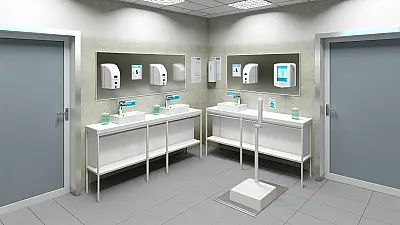GLENWOOD, MN - A complaint investigation at Glenwood Village Care Center revealed systemic failures in providing basic oral hygiene care to residents, with facility staff unable to confirm whether a resident received mouth care for an entire day despite the facility's own monitoring system flagging the issue.

Breakdown in Basic Care Delivery
During the May 21, 2025 inspection, surveyors discovered that Resident 34 had not received oral care despite the facility's audit system identifying the missed care. The investigation revealed a critical gap between the nursing home's monitoring procedures and actual care delivery.
The facility employed an audit card system designed to track whether residents received oral hygiene care. When surveyors examined the system on May 21, they found that Care Manager A (CM-A) had placed an audit card to monitor Resident 34's oral care. However, according to facility protocol, CM-A should have removed and checked the audit card within 12 hours to verify the care was completed. This check never occurred, and staff could not confirm whether the resident had received any oral care that day.
The Director of Nursing acknowledged during the investigation that the facility's expectation was for all residents to receive oral care twice daily. Despite having a monitoring system in place specifically to ensure this care was provided, the system failed in its basic function.
Health Risks of Inadequate Oral Hygiene
Oral care is not merely a comfort measure but a critical component of overall health maintenance, particularly for nursing home residents. Poor oral hygiene in long-term care settings can lead to multiple serious health complications.
Residents who do not receive regular mouth care face increased risk of periodontal disease, which causes inflammation and infection of the gums and supporting bone structure. Beyond dental health, inadequate oral hygiene creates a breeding ground for harmful bacteria that can be aspirated into the lungs, potentially causing aspiration pneumonia—a particularly dangerous condition for elderly and medically fragile individuals.
For residents with diabetes, poor oral care can make blood sugar control more difficult, as gum infections can affect glucose metabolism. Additionally, the discomfort from dental problems can interfere with proper nutrition, as residents may avoid eating due to mouth pain, leading to weight loss and malnutrition.
Research has also established links between poor oral health and cardiovascular disease, as bacteria from periodontal infections can enter the bloodstream and contribute to heart problems. For nursing home residents, who often have multiple chronic conditions, these compounding health risks can be particularly serious.
Quality Assurance System Failures
The violation at Glenwood Village Care Center revealed more than just a single missed care task—it exposed fundamental problems with the facility's quality assurance processes. The nursing home had implemented an audit card system specifically designed to catch gaps in care delivery, yet the system itself was not being properly monitored or enforced.
According to the facility's own policy on Activities of Daily Living, revised as recently as March 20, 2025, the nursing home committed to providing residents with care and services to ensure their daily living activities "do not diminish unless the circumstances of their clinical condition(s) demonstrate that diminishing ADLs are unavoidable." The policy specifically listed oral care as one of the hygiene services that would be provided to residents unable to perform these tasks independently.
The disconnect between written policy and actual practice raises questions about oversight and accountability. When audit systems designed to identify care gaps are themselves not being audited or followed, residents are left vulnerable to lapses in basic care.
Standard Expectations for Oral Hygiene in Long-Term Care
Industry standards and best practices call for oral care to be provided at minimum twice daily for nursing home residents who cannot perform this task independently. This typically includes brushing teeth or cleaning dentures in the morning and evening, along with regular assessment of oral health status.
Proper oral care protocols should include: thorough brushing of all tooth surfaces or cleaning of dentures, gentle cleaning of the tongue, inspection of the mouth for sores or abnormalities, and ensuring adequate moisture in the mouth for residents with dry mouth conditions. For residents with cognitive impairment who may resist care, staff should employ gentle persuasion techniques and consider optimal timing to maximize cooperation.
Additional Issues Identified
The investigation documented that the facility's monitoring system, while present on paper, lacked effective implementation and follow-through. The 12-hour audit card check protocol was not consistently followed, creating gaps where missed care could go undetected for extended periods.
The inspection also revealed potential gaps in staff training or supervision, as the basic expectation of twice-daily oral care was not being consistently met despite clear facility policies requiring this level of care.
The Centers for Medicare & Medicaid Services classified this violation as causing minimal harm or potential for actual harm, affecting few residents. However, the systemic nature of the quality assurance failures suggests the potential for broader impacts across the facility's care delivery systems.
Full Inspection Report
The details above represent a summary of key findings. View the complete inspection report for Glenwood Village Care Center from 2025-05-21 including all violations, facility responses, and corrective action plans.
💬 Join the Discussion
Comments are moderated. Please keep discussions respectful and relevant to nursing home care quality.